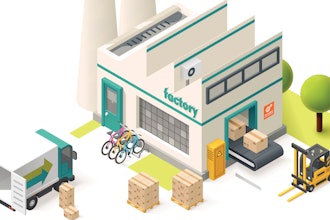BRUSSELS, Belgium (AP) — European Union leaders are demanding that the costly fight against climate change cannot come at the expense of their economies as they continue two days of talks on Friday.
French President Nicolas Sarkozy said European nations would push trading partners United States and China to join a global pact to cut climate emissions as he called Friday for rules to penalize countries ''that don't play by the rules.''
''We're not going to continue to import from a country that respects no rules when we're imposing those rules on our own firms,'' he said — moving away from the EU line that trade sanctions would only emerge if it can't agree an accord next year.
The EU's 27 countries insisted that they wanted to stick to promises they made last year to switch to a low-carbon economy in an effort to curb global warming.
But loading polluting industries with billions of euros (dollars) in costs under a pay-to-pollute program is already proving controversial.
Germany, Poland, the Czech Republic and others that burn large amounts of polluting coal to fire power plants and steel mills called for the EU to ease off energy-intensive industries such as power plants and steel mills.
Czech Prime Minister Mirek Topolanek said EU nations were worried about shedding jobs from polluting industries that are major employers.
''It's obvious that the package will see significant changes,'' Topolanek said. ''There is already an exodus of energy-intensive industry which has a negative impact on employment rates.''
Slovenian Prime Minister Janez Jansa — who led the talks — stressed that the EU wanted to make cuts in line with the United States and China to avoid Europe losing pace with other regions.
The 27 leaders backed a much watered down plan to improve ties with nations in North Africa and the Middle East through the creation of a ''Mediterranean Union.''
French President Nicolas Sarkozy had promoted the idea of bringing together all the nations around the Mediterranean Sea into a new organization that would not include northern European nations — although they would have been asked to contribute funding.
Germany had resisted that. A compromise reached Thursday will see the EU rebrand its existing aid and trade program for the region and with the addition of a new joint presidency with a staff of 20 to develop cooperation projects.
The EU is currently waiting for member nations to ratify last year's Lisbon Treaty which is designed to overhaul the way the bloc works. With votes pending on the treaty, the bloc's leadership is anxious to avoid controversial policies that could alienate national parliaments — or the wider public in Ireland which will hold a referendum on the treaty.
That led to a low key summit with few new initiatives. Instead, leaders sought to reassure citizens that the European economy was riding out the global downturn and popular measures announced last year to tackle climate change decided last year remain on track.
While acknowledging that tougher economic times lie ahead, they place the blame outside Europe on ''a slowdown of economic activity in the United States, higher oil and commodity prices and ongoing turbulence on financial markets.''
In response, they will Friday recommit to strict government spending and an economic reform package launched in 2000 to liberalize markets, ease labor restrictions and boost innovation with the goal of creating more jobs and lifting growth.
On the environment, leaders said they would keep last year's promise to cut overall carbon dioxide emissions by 20 percent from 1990 levels by 2020. That deal left open the sensitive issue of which nations would have to make the biggest cuts, and Friday's statement is expected to say the burden sharing won't have to be worked out until early next year.
By then the EU is hopeful the treaty will be ratified.






















